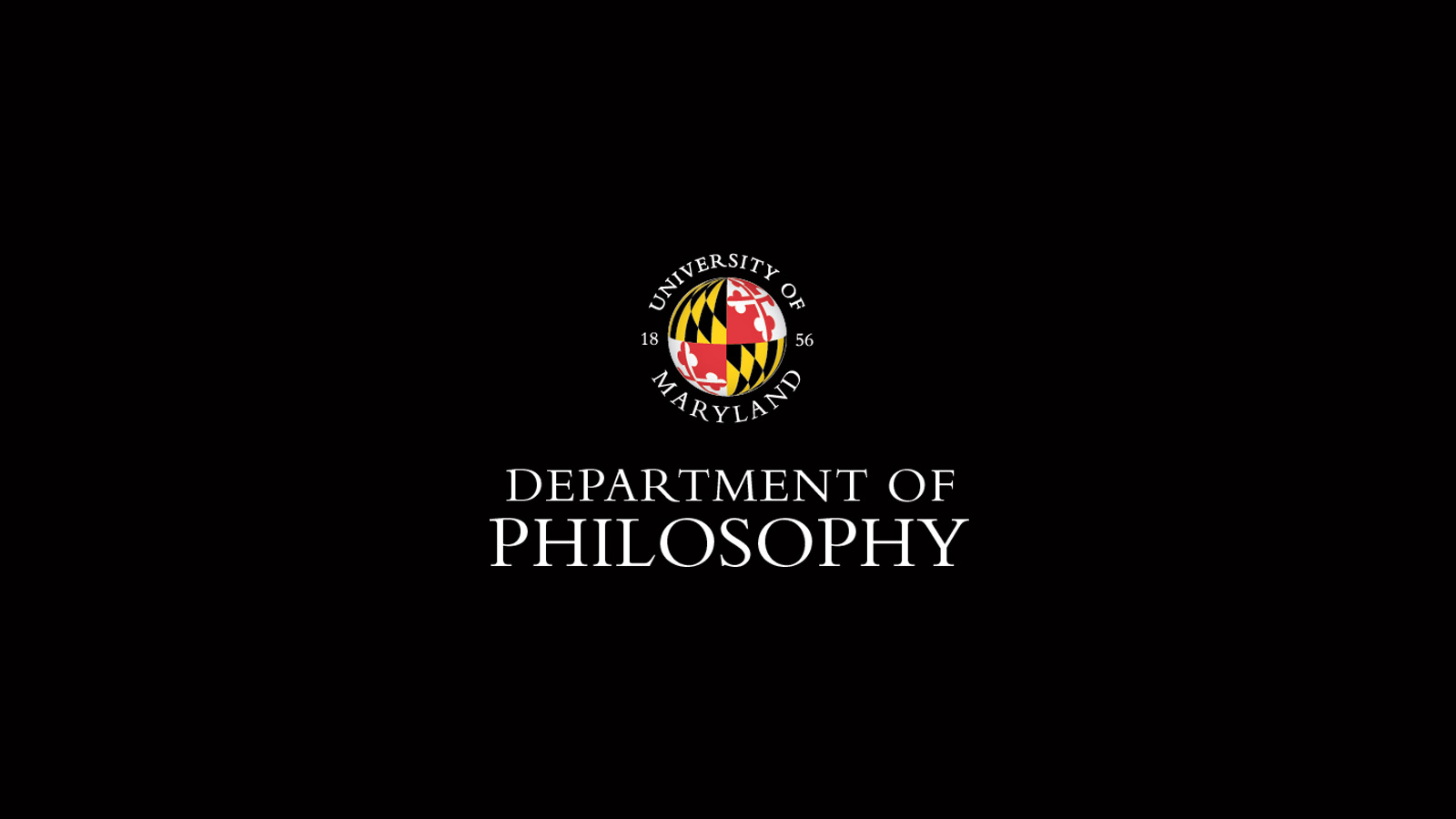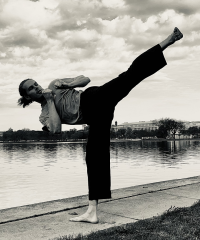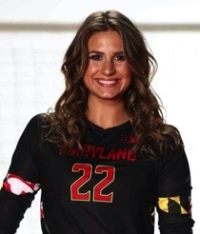Madeline Naumann and Shannon Dawe: Philosopher-Athletes
May 15, 2023

Athletes in the Philosophy Department
It's no news that philosophy is a cerebral discipline. There's also a strong current in philosophy that encourages us to think of ourselves as essentially mental. In the Meditations, Descartes asks "But what, then, am I?" His famous answer: "A thing that thinks." The argument that goes with this has its problems, and most philosophers these days think that without the brain there is no mind. Nonetheless, the temptation to focus our philosophical account of ourselves on our minds is strong. There's also the persistent but misguided notion that there's a gulf between being intellectual and being athletic. In fact, this is silly, as two of our majors are particularly well aware. Madeline Naumann and Shannon Dawe are graduating seniors. Both are completing honors theses in philosophy, and both are serious athletes.
Shannon Dawe is writing an honors thesis on Plato with Prof. Rachel Singpurwalla. In high school he had always been an athlete, but after graduating, just going to the gym seemed pointless. While at McGill University, he saw students practicing martial arts and thought that might be a more purposeful way to keep up his interest in athletics. For the last five or so years he has been a student and more recently a teacher of Tae Kwon Do at Yong Studios in DC and Bethesda.
Shannon read Plato as a student at Montgomery College before coming to Maryland and was particularly intrigued by Book 7 of the Republic, with its famous Allegory of the Cave. He was inspired by what Plato has to say about education, and saw it as a model for his own studies. Education for Plato is not just about the intellect but about the soul --- the capacities and dispositions that constitute our psychology. One component of the soul on Plato's account is the "spirited" part . This has to do with anger, but also with motivation and striving for victory. Shannon saw the connection with Tae Kwon Do but also sees Tae Kwon Do concerned with more. Plato thought that an over-emphasis on gymnastic education leads to a kind of harshness of the soul. He saw musical education, broadly understood, as a counter to that tendency. One part of Tae Kwon Do practice involves choreographed movements, sometimes done to music. Tae Kwon Do might seem superficially to be more aligned with gymnastic education in Plato's sense, but while that connection is definitely there, Shannon saw this part as closer to Plato's notion of musical education. with its tempering quality.
Tae Kwon Do is as much about cultivating self-discipline and self-control as about self-defense, and those virtues are as important for academic work as for athletic activity.
Prof. Singpurwalla describes him as "very self-motivated." She adds that "he is creative with his interpretations of the text, and is a careful and thorough reader of texts." For Shannon. the idea of tension between the physical and the intellectual rests on a mistake. "Progress in either one is based on self-discipline and coming to learn that you are more capable than you thought you were."
Madeline (Maddie) Naumann is also a graduating senior, whose honors thesis is on the metaphysics of time and laws of nature, directed by Prof. Harjit Bhogal. As a middle-school student, she confidently and correctly predicted that she would play volleyball in university. Her college volleyball career began at the University of Miami, and then she transferred to Maryland and Big 10 athletics as a sophomore. For the last two seasons, she has been captain of Maryland's Women's Volleyball team. Maddie sees sports and serious intellectual work as requiring discipline, focus and dedication. Her father was a philosophy major, but ended up in business, and she remembers wondering why he picked philosophy. Her view changed when she began taking classes. She was fascinated by the free will question, but also found philosophy to make a difference elsewhere.
At one point she found herself dealing with pre-game anxiety. She talked with her coaches and the team psychologist, but philosophy's contribution was especially useful. As she puts it, it helped her to learn to live well in her own head. "I found that my studies on free will and stoicism helped me realize that I do not always have control, which allowed me to be kinder to myself and give myself some grace on the court."
Prof. Bhogal's comments on Maddie bear out her sense that her athletics and intellectual pursuits fit together. " Maddie has virtues of focus and determination and being able to combine incremental improvements to create huge advances over time -- virtues naturally connected to athletic training."
Philosophy, Maddie says, also helped her to be a better teammate and a more conscientious human being. "I've learned that it's not about winning arguments or being right, but finding the best path forward. I am incredibly grateful for my education in philosophy at UMD."



